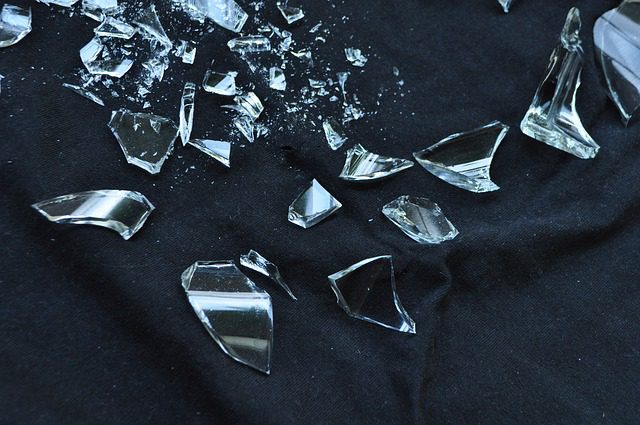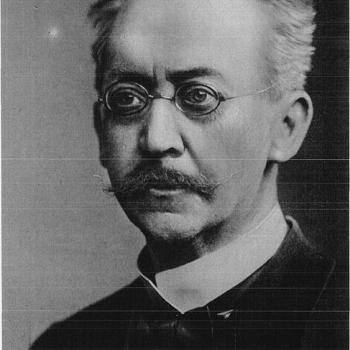
Photograph by “marcelabr” (11-8-16) [Pixabay / CC0 public domain]
***
Dr. Daniel Fincke, a philosophy professor, who runs the Camels with Hammers blog, responded to my paper, “Reply to Daniel Fincke’s Analyses of His Deconversion” (7-15-17). His reply is called, “Have I Considered Catholicism Sufficiently?” (7-19-17), His words will be in blue.
*****
Dave Armstrong at Biblical Evidence for Catholicism has written a very genial open letter to me, which he seems to hope might serve as the first volley in an exchange of posts.
I appreciate the kind description, and yes I do hope it will be the start of some good, penetrating discussion. Your private mails and this equally (almost remarkably) genial reply lead me to believe that it will be so, and that our goals in that respect are the same: open, amiable, challenging dialogue minus any hint of rancor, malice, or vitriol. Few things make me happier than to find that. I’m honored, too, that a professor would take me up on it. Thanks!
To start out he’s written a reply to one of my emotionally hotter and polemically colorful posts entitled, “After My Deconversion: I Refuse To Let Christians Judge Me”. I’ll admit, with distance it’s a little hard for me to have the emotional rawness of the piece sort of read back to me. It’s not one of my more typical posts where I lay out copious detailed arguments, but more an expression of my defiance of Christians who would judge me for my apostasy. As for many ex-Christians, in the first few years after my deconversion it was very difficult for me upon deconverting to immediately get out of the habit of caring a great deal about what Christians thought of me and my leaving the faith. Ingrained habits of mind, especially ones reinforced by cultural hegemonies, are hard to unlearn, even when you think you have every reason to reject them.
Understood. I’m not sure why I focused on this one to start. You have so many papers on the topic (I do commend you for your thoroughness), I was going through them, and something here (maybe its “colorful” nature!) caught my eye. I’m very glad to hear that you are not still living with that amount of anger and frustration, or whatever you would call it. I actually went through a minor example of the same sort of thing when I left Protestantism in 1990, but not nearly as much, because for the most part, I learned great things in evangelicalism: most of which are compatible with Catholicism. But I was disgusted with some aspects and polemics against Catholicism that turned out to be untrue, and felt that I had been hoodwinked a bit (never a nice feeling).
I didn’t realize where “Camels with Hammers” as a title came from. Interesting.
But children are a fresh beginning. They’re clean slates. They have no memory of the past, no lingering grudges, and they don’t have prejudices whereby everything is bound to the connotations it had for the old systems before their birth. They can look at things with fresh eyes and affirm without all the baggage that the lions cope with.
I like your “child” stage and think it’s good for atheists to try to form a pro-active outlook, rather than always being “reactive” against us. The anger out there towards Christians is palpable and tangible (and very ugly). So you get crap from a sector of Christians; I get it from the notorious sub-group of “angry atheists” online.
My motive in doing so is primarily to give expression to the experience of deconverts whose journeys were like mine. They need resources they can identify with and which help them understand they are not alone. And their grateful e-mails to me are one of the most gratifying fruits of this blog for me.
This is precisely a major recent point of mine, in explaining why I critique deconversion stories, and what their intended purpose seems to be. It seems to be controversial, but what you write here is precisely what I have been saying, too. You write it to encourage fellow deconverts or (maybe) lifelong atheists, just as Christian conversion stories are meant to edify fellow Christians. Any common ground we can find is good.
I also wrote the deconversion series because I think it’s valuable to show doubting Christians how it is possible to make it through to the other side. Finally, as an act of memoir and self-understanding, writing about my deconversion has proved very cathartic and clarifying and even has brought some closure.
Yep; and as a Christian apologist, you would expect me to poke holes in it, right? :-)
So, looking back at a post that was written five years ago after an old friend from my Christian days brought a lot of defiant old lion feelings back up feels a little strange. But it feels like a fitting way to resume blogging after a long hiatus.
I’m honored that my critique would stimulate you to start blogging again. Wow!
Now. About Dave’s reply to the post in question.
The basic gist of Dave’s reply is that the kind of Christianity I experienced, thought within, and rejected in my deconversion is fundamentally Calvinistic. Most of the major aspects of Christianity that I focused on in judging the religion morally perverse and harmful were due to the Calvinist kind of Christianity I had. Roman Catholicism does not have the same problems as Calvinism. So, I have not really given reasons for rejecting Christianity en toto, but instead I have just given a case for rejecting Calvinism. And Dave is totally cool with rejecting Calvinism.
And I largely agree with him!
Thus, you concede (or already agreed with, as it were) my main point, which is a very rare thing to see!
Even though I was only briefly (and very unorthodoxly) an explicit Calvinist, Calvinistic themes permeate enough of evangelical Christianity that its influence was part and parcel even in the kind of theology that I grew up with that never explicitly mentioned Calvinism.
I saw that you were originally Church of Christ, which (ironically) doesn’t even hold to original sin. So the total depravity teaching (being a perversion of original sin) had to come later on when you started meeting Calvinists.
In thinking about blogging in the future, for some time I have been thinking that it would be best to start breaking up my posts on Christianity along theological lines more and address different kinds of Christians for precisely this reason.
I would be happy at least to see atheists, sharing their stories, stop equating “Christianity” with some extreme fundamentalist version of it. It’s been three straight stories that I have critiqued, now, where this was the case. Straw men! It’s a matter of honest labeling.
The denominations within Christianity exist for a reason.
Yes, Martin Luther, who began the sad proliferation when he changed the principle of Christian authority from Bible-Church-Tradition to sola Scriptura.
There are real differences in their conceptions of the religion. And it is true that I have defaulted to primarily criticizing the American Evangelical Protestantism that was my tradition and which was true Christianity to me when I was a Christian. And even though I often make criticisms of Christianity more broadly, one of the concepts I have the most venom for is original sin as interpreted in the Calvinist way, as total depravity. This is a major crux of my moral hostility towards Christianity.
And as I have noted, that is a small minority position in overall Christianity, including through history. And it’s unbiblical. I’ve tackled Calvin and his Institutes in two books and I think I have refuted the doctrine of total depravity (if I do say so).
So, I find it serendipitous that I find a Catholic apologist on my door step.
Great!
While I am by no means well versed in Catholic theology, I did my PhD in Philosophy at Fordham University and, this might surprise and encourage Dave, uncoincidentally Thomas Aquinas had a truly decisive influence on my theory of goodness and evil and helped solidify my essentially Aristotelian approach to moral philosophy.
I do think that’s good. If you must be an atheist, at least your ethics were largely formed by a good Catholic. :-) I put together a Quotable Summa Theologica and used to have a web page about Aquinas.
So that’s a nice shared starting point.
Yes it is.
Most of what I think is good about Catholicism I see it as owing to Aristotle.
Well, certainly he got from Aristotle his fundamental outlook vis-a-vis faith and reason. It’s the mainstream apologetical approach and one that I basically follow, though I draw from many different philosophies in my epistemological analyses and am mostly a follower of the thought of John Henry Cardinal Newman (who was primarily responsible for “arguing” me into Catholicism).
Dave responded to one other central issue in his post: my rejection of Christianity for the ways my gay best friend in college suffered deeply due to the idea that his homosexuality was sinful. Dave’s reply amounted to an appeal that you can hate the sin without hating the sinner.
Yes you can, and we all do it, bar none. We all know people with whom we profoundly disagree, yet we love them.
I don’t see any good prospects at this juncture in talking about the homosexual issue. I don’t believe it is (in most cases) able to be talked about today: the disagreements and misunderstandings are so profound. And in the rare cases where it can be done (I have on occasion), it will almost always be within a friendship and built-up trust. You can’t know whether I am truly a “bigot” or “hateful person” until you get to know me. Then maybe eventually we can talk about the virtually impossible (if you like).
I was a bit concerned that you would be angered by what I already wrote in this regard. That you are not is a good sign. But I’m in no mood for being lied about as a hateful bigot (from others, not you), which will happen if we go down that road. It’s not even a matter of being thin-skinned. I simply have less than no patience with that. Once you know me better, perhaps you would defend me against such charges, and it would be a much easier situation.
My two best friends in high school were homosexuals (though they were not “out”: as was usually the case at that age, back in the 70s). I got together with one again in 2009 at a school reunion, and we had a wonderful time reminiscing and catching up. He’s a great guy. I didn’t preach to him or say he was going to hell. I said not one word about it. If he asked my opinion I would have given it, and said that it had nothing to do with our friendship.
Today, we’re in a society where it is almost inevitable that all personal disagreements and criticisms are taken as personal insults, when often they are not that at all. I believe in dialogue and the socratic method, and believe that there are truths “out there” that we can all learn of and accept. I’m always after the truth. I’m not out to put people down or insult them, even where we disagree.
Of course there is a place for homosexuals in Catholicism, as long as they are celibate, and that is the catch, of course. Our Catechism says that the orientation is not sinful in and of itself.
So we’ve already discussed the issue, but I’m not willing to go further at this point, per my above explanations. Of the three papers of yours you suggest I might read, even the first is partially about LGBT.
Finally, here’s a little more of my take on Original Sin: Why Sin is a False and Morally and Biologically Backward Concept. Even though my view of original sin is predominantly colored by the excesses of Augustine and Calvin, I still think some of these criticisms apply to the concept in general.
Original sin and [actual] sin are two very different things, so I’m not sure where you are gong with that, but I’d be glad to take a look at it and put in my $00.02 worth.
While I grant, and have known since college, that in theory Christianity technically takes the view that our bodies are inherently good because God makes only good things and nothing evil (since evil is not even really a thing), I simply don’t think that in reality Catholicism means affirmation of the body in practice. Catholic guilt is a notorious reality and it’s largely rooted in the ways that Manicheanism operates on the practical level of Christianity despite the Church’s theoretical attempts to deny it.
Some of that is remaining baggage from the Augustinian sort of extreme antipathy to licentious sexuality and going to the other extreme (I saw not a little of that when I compiled my book of his quotations). I think, today, though, it is more so the result of our current sexual revolution, extreme overreactions to that (the fundamentalist overly strict, legalistic game), and also the wreckage that has come from that social movement (e.g., pornography, broken homes, women being seen more than being seen as mere objects for sexual pleasure, etc.). It’s not self-loathing or self-hatred to have a properly understood Catholic view of sexuality, which entails waiting till one is married (to the opposite sex: we now have to add). We’re all for sex. We just want to see it enjoyed within its proper context, so that all parties can be the most happy and not be exploited and left alone. Huge topic . . .
If we are to assess what Catholicism is, it’s difficult to disentangle the way it’s actually experienced at the folk religion level from what it might be in theory.
There is some truth to that; however, I’ve always said that the only sensible, rational way to discuss religion is to treat each group in terms of its stated doctrines. That is objective material that can be wrangled about. How people apply or misapply or fall short of those moral teachings and mores is another topic altogether, getting into practical living or “discipleship” or “sanctification” or the day-to-day walk with Jesus (take your pick). That’s a very different subject matter than theology and its rationales.
People always want to discuss Catholicism in terms of what some old lady in the jungles of Mexico with purple tennis shoes thinks it is (complete with true Marian idolatry). That’s nonsense. It is what it is, based on our dogmas and doctrines, which can be ascertained. That is Catholicism. As an apologist, I don’t defend every silly or ignorant thing that millions of Catholics may do. My job is to defend our dogmas and doctrines. I can hardly do other than that. I’m happy to note when some Catholic or other is falling short of what we teach, and is a poor example of a Catholic. But to me that has nothing to do (strictly speaking) with what we officially teach. Distortions of things are not the things themselves. That’s not a=a. It’s b=a, which is nonsensical.
I think that if a religion purports to be God’s conduit for guiding His people on Earth it is more telling how that religion actually manifests than what theologians say about it.
That’s a very profound point, and I’d like to speak to it a bit. The Christian’s task is to communicate to the world that we have something special, from God (the gospel of salvation, and as Catholics say, “the fullness of faith”). And to do so, ideally we ought to be the best examples we can be. We’re to love others as Christ loved us (the royal commandment). That’s a tall order; consequently, we all fall short of it virtually on a daily basis.
And then of course we hear the good ol’ anti-Christian “hypocrisy” chestnut. But we have never claimed to be anything but sinners (original sin and actual sin). No Christian who knows the Bible and Christian history denies that. We have a saying, “if you think our church is filled with hypocrites, come join us: there’s always room for one more!” Mark Twain cracked that he would never be a member of a church that would have him as a member. If some Christian tells you he has made it and is totally free from sin, ignore him as a fool and a liar. We will fall short, again and again.
That’s why we Catholics have confession. And Protestants are urged to also repent, confess sins directly to God, or informally to a friend, etc., and move on. Catholics also have the tradition of saints: particularly holy people who are models we can look up to. That is the best of Catholicism in practice. If you want to know about us, look at our saints, and of course, Mary, and Jesus. But it’s very easy to only look at bad examples (e.g., the abominable molesting priest), and then dismiss a school of thought because of that. Anyone can do that. It’s easy as pie. But I would say it’s neither fair nor reasonable.
Since I don’t think it makes much sense to imagine an omnipotent God who can only manage to make his scholars really understand we don’t live in a dualistic world where the spirit is good and the flesh is evil while He leaves the majority of His flock defaults to more primitive, dualistic folk religious beliefs. It’s hard for me to posit a morally perfect and omnipotent being behind such a systemic miscommunication.
Christians are often very misinformed about their own supposed beliefs. I became an apologist to try to help rectify some of that stupendous amount of ignorance. That’s a problem of 1) sinful human beings, and 2) of the system of theological instruction in any given group, not of God.
So, I thank Dave for his gracious offer to exchange views and I hope to hear back.
Happy to do so, and I thank you for the opportunity and for graciously responding as well.













